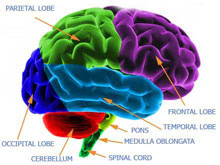A combination of vitamin D3 and curcumin, from tumeric, may boost the immune system, and help it clear the protein plaques linked to Alzheimer’s, says a new study.

A growing number of studies have linked deficiency of vitamin D to increased risks of cardiovascular diseases, diabetes, osteoporosis, depression, and periodontal disease, all of which have been linked to some degree to increased risks for dementia.
New data, published in the Journal of Alzheimer’s Disease, may lead to new approaches in preventing Alzheimer’s by using vitamin D3 alone or in combination with Curcumin to boost the immune system in protecting the brain against beta-amyloid.
The build-up of plaque from beta-amyloid deposits in the brain is associated with an increase in brain cell damage and death from oxidative stress. This is related to a loss of cognitive function and an increased risk of Alzheimer’s, the most common form of dementia and currently affects over 13 million people worldwide.
The direct and indirect cost of Alzheimer care is over $100 billion in the US.
“We hope that vitamin D3 and curcumin, both naturally occurring nutrients, may offer new preventive and treatment possibilities for Alzheimer’s disease,” said Dr Milan Fiala from the University of California Los Angeles (UCLA).
Study details
Monocyte cells, which transform into macrophages and in turn boost the immune system, were isolated from the blood samples were taken from nine Alzheimer’s patients, one patient with mild cognitive impairment and three healthy control subjects.
The macrophages were then incubated with beta-amyloid, vitamin D3 and natural or curcumin-soy phytosome complex. The curcumin complex was developed in the laboratory of John Cashman at the Human BioMolecular Research Institute.
The researchers say that naturally occurring curcumin is very poorly absorbed, making it less effective than the new Curcumin-Soy phytosome combination, known as Meriva, developed by Indena, an Italian nutraceutical company. (This new product is now available at the Hansen Clinic)
“We think some of the novel synthetic compounds will get around the shortcomings of curcumin and improve the therapeutic efficacy,” said Cashman.
The curcuminoids were found to enhance binding of beta-amyloid to macrophages, and that vitamin D could strongly stimulate the uptake and absorption of beta-amyloid in macrophages in most of the patients.
“Since vitamin D and curcumin work differently with the immune system, we may find that a combination of the two or each used alone may be more effective – depending on the individual patient,” said Fiala.
Source: Journal of Alzheimer’s Diseas. Volume 17, Number 3, Pages 703-717, doi: 10.3233/JAD-2009-1080.“1α,25-dihydroxyvitamin D_{3} Interacts with Curcuminoids to Stimulate Amyloid-β Clearance by Macrophages of Alzheimer’s Disease Patient”
Authors: A. Masoumi, B. Goldenson, S. Ghirmai, H. Avagyan, J. Zaghi, K. Abel, X. Zheng, A. Espinosa-Jeffrey, M. Mahanian, P.T. Liu, M. Hewison, M. Mizwicki, J. Cashman, M. Fialas

